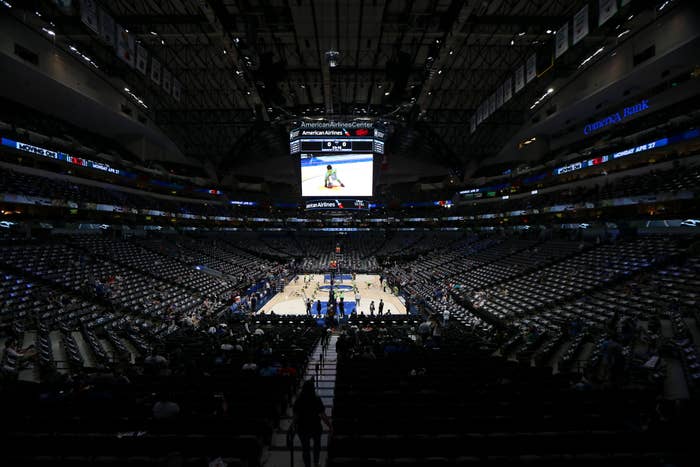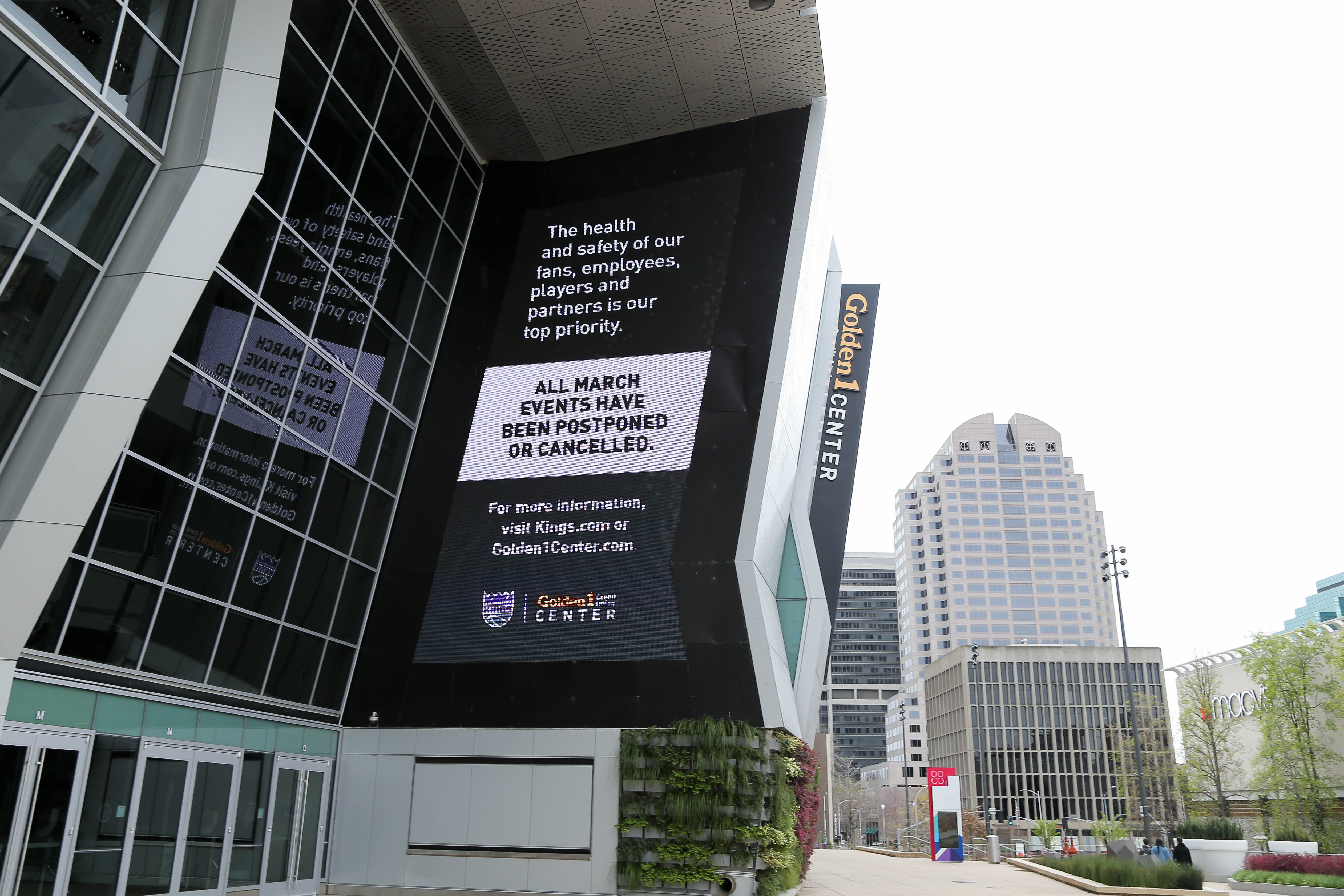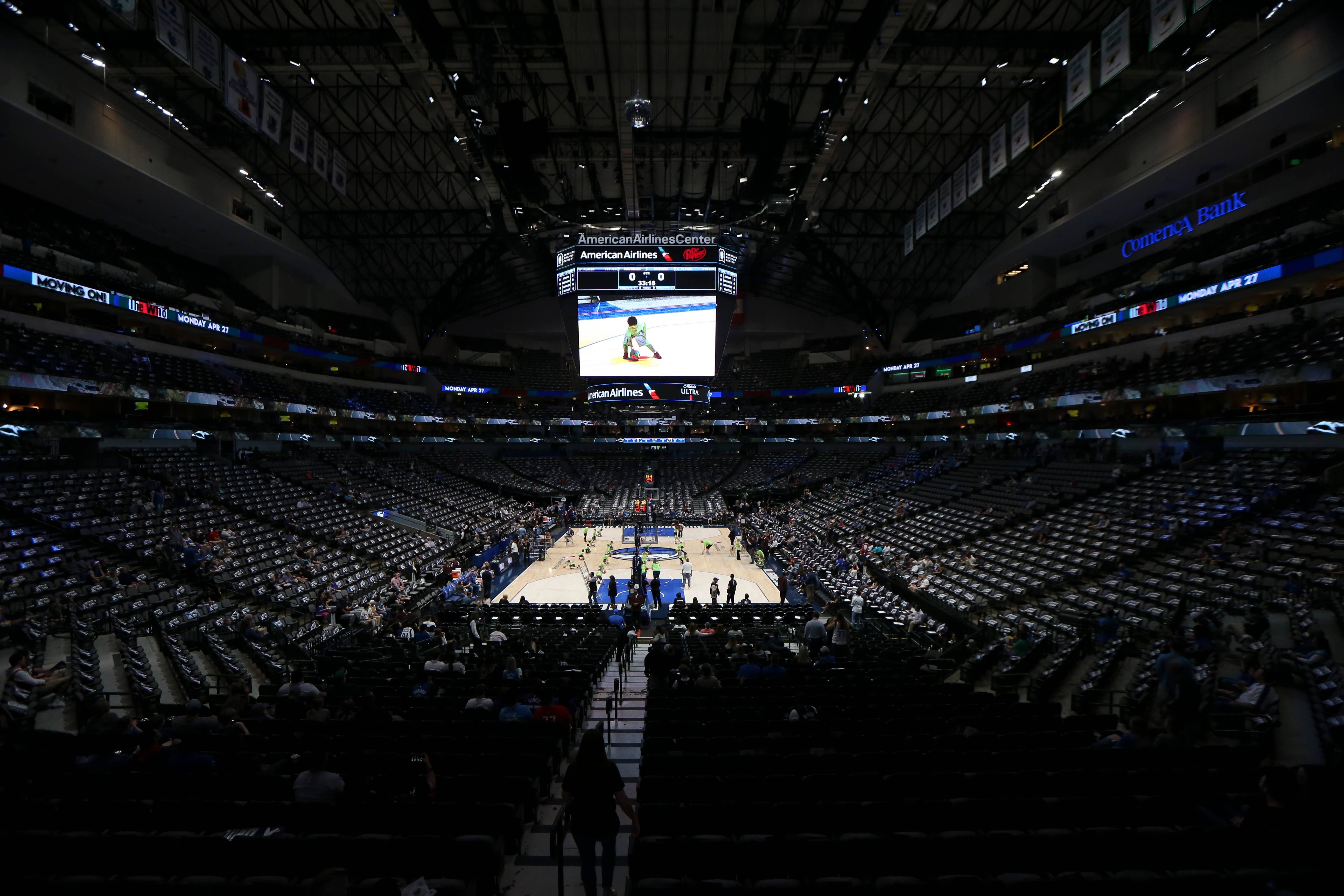
Would you take the Mavericks getting 9.5 points on the road against the Kings?
In real-life, with a healthy Luka Doncic and Kristaps Porzingis in the lineup, only the most contrarian of sports gamblers would pass up the opportunity to wager on playoff-bound Dallas as nearly double-digit underdogs against under-.500 Sacramento. But this past Wednesday, the digital version of Doncic and KP were waxed by the Kings, 110-96, for an audience of hundreds sweating the final score of a video game.
Desperate times often call for desperate measures and for hardcore sports gamblers—also known as degenerates—there’s never been a time like the present. With almost every major sports league and organization around the world pausing operations due to the coronavirus crisis, the opportunity for gamblers to indulge in their favorite form of entertainment are few and far between. Ever since the NBA made the decision to suspend its season March 11—with the NHL, MLB, and NCAA quickly following suit and either postponing or canceling their seasons—sportsbooks have been forced to pivot like never before.
“Everything is shut down unless you’re a fan of Belarusian soccer or Haitian soccer,” says David Strauss, head oddsmaker and creator of SIM betting at MyBookie.ag, an online sports gambling site.
For those that can’t help themselves, operations like MyBookie have stepped up to offer their customers odds on lower-level soccer leagues, Russian 3-on-3 basketball, and esports like Call of Duty and Rainbow 6 to fill the void. But perhaps surprisingly, the most popular new offering has been video game simulations of regular-season NBA and NFL contests.
“People seem to like it a lot,” says Strauss. “If this was running in the good times, it would probably be our sixth biggest sport. Not only are we seeing people flock to it, we’re seeing players sign up new accounts.”
“It got to a point where every time we would find another league that was playing one or two of these leagues would stop and suspend play.” — Jay Kornegay
While betting on a video game might sound ridiculous to some, when the pickings are slim and the outcomes are reasonably assured to be random and incorruptible, hardcore gamblers will take whatever they can get. MyBookie started broadcasting PlayStation simulations of CPU vs. CPU regular-season games of NBA 2K on the highest level of difficulty via Twitch March 18 with point-spreads for each. Strauss says as many as 500-600 viewers a night have tuned into the streams to watch and wager on the action like it was a real game.
“I’m making a big assumption here that EA’s games are smart enough that they mimic real-life play close enough that we can use the same formulas to set a real-life match onto these simulated ones,” says Strauss. “We factor in a little extra for a home team in a video game more than we would in real-life.”
While Strauss says MyBookie is “more than happy to break even” writing tickets for simulated NBA games, like the rest of society he’s hopeful real-life action returns as soon as possible. Of course when that is, nobody knows.
The last time the sports world experienced a significant shutdown was immediately after the 9/11 terrorist attacks in 2001. But that only lasted about a week and only affected American sports. There was light at the end of a very dark tunnel that soon enough the games would return and provide a desperately needed distraction from the real world. Fast-forward 19 years, and the debilitating and scary impact of the coronavirus on everyday life across the US has forced traditional sportsbooks like those in Las Vegas, the Mecca of American Sports Gambling, to shut down.
“9/11 we thought we saw the light at the end of the tunnel after a week or so. I’m not sure if we see the light at the end of the tunnel, as of right now,” says Jay Kornegay, the executive vice president of race and sportsbook operations of the SuperBook at the Westgate Resort and Casino. “This just doesn’t look like [games will return] anytime soon.”

The SuperBook, which bills itself as the largest sportsbook in the world, pivoted when the games went dark. For roughly the first week after play stopped in the NBA, NHL, and college basketball, casinos were still open and Kornegay and his team began digging to find sports for customers to wager on—Australian Rules Football, Russian hockey playoffs, and soccer leagues you never heard of. They weren’t particularly popular, but it was something in a vast sea of nothing. According to Kornegay, “90-95 percent” of the tickets Westgate wrote after the NBA suspended its season “came via mobile wagers on B league sports.” That, of course, didn’t last long.
“It got to a point where every time we would find another league that was playing one or two of these leagues would stop and suspend play,” says Kornegay.
Then Nevada governor Steve Sisolak issued an unprecedented order on March 17 to close casinos for 30 days. No in-person wagering also meant no mobile wagering for just about every outfit in Sin City. While Westgate and other sportsbooks could theoretically offer up odds on the few niche sports still operational—like sumo wrestling—Kornegay says “we just don’t think it makes financial sense.” Too many back-end employees would need to be present for business to operate as usual, thanks to the state’s numerous checks and balances on the casino industry. The meager take from niche sports and future bets on the NFL and MLB wouldn’t cover costs. And it certainly won’t put a dent in the massive money it’s missing out on this month.
The canceling of games and suspension of seasons came at one of the worst times. Kornegay says the SuperBook writes more tickets and collects more money for the first four days of March Madness than it does for another other event, including the Super Bowl. There’s no way to recoup it. Westgate won’t even offer prop bets on April’s NFL Draft—ironically scheduled to have happened in Vegas. They’re just going to ride out the wave of darkness.
“Unless one of the major leagues comes back, I don’t see us opening the mobile until then, outside of them allowing us to open up the entire casino and hotel,” says Kornegay. “If they open that up, and even though the leagues haven’t come back yet, we’ll offer whatever we can at that point. But it does change daily.”
FanDuel, with a physical presence in northern New Jersey that’s currently shuttered, is offering its customers mobile betting with odds on Cam Newton’s next team, futures on the World Series, Masters, and next season’s NFL MVP, and, of course, Belarussian soccer. William Hill, with physical books in five states, touted Thursday that it was offering “select table tennis matches” for mobile customers with nothing else scheduled for the remainder of the week.
For the books than can experiment and are loosely regulated by governments, expect continued innovation to keep customers gambling and attract new ones. Over at MyBookie, Strauss says he’s cooking up new offerings he’s not ready to reveal. During the darkest time the sports gambling industry has ever seen, Strauss is lucky he can get creative while other books are forced to unnervingly sit on the sidelines.
“They can’t even do weather betting because there’s restrictions placed on their businesses,” Strauss says. “I wish them all the best, but I’m glad I’m not in their shoes.”

